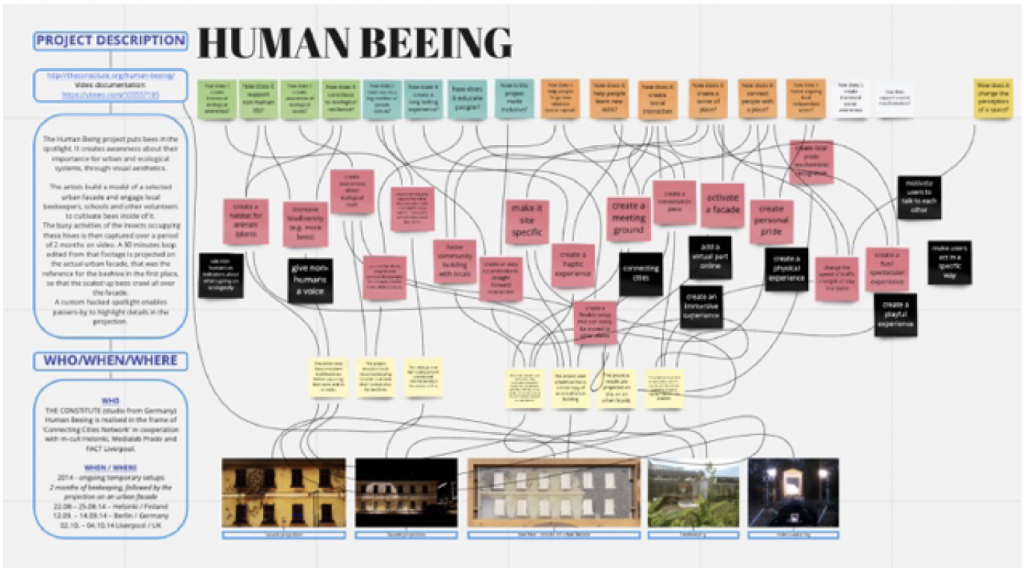This paper is one of the outcomes of the ongoing project ‘From Prevention to Resilence‘ and it was published in the MAB20: Media Architecture Biennale Proceedings and can be downloaded below.
Boudewijn Boon, Maximiliane Nirschl, Giulia Gualtieri, Frank Suurenbroek, and Martijn de Waal. 2021. Generating and disseminating intermediate- level knowledge on multiple levels of abstraction: An exploratory case in media architecture. In Media Architecture Biennale 20 (MAB20), June 28–July 02, 2021, Amsterdam and Utrecht, Netherlands. ACM, New York, NY, USA, 5 pages. https://doi.org/10.1145/3469410.3469430
Abstract
The concept of intermediate-level knowledge is increasingly used in interaction design research and media architecture. Recently it has been proposed that intermediate-level knowledge is better actionable to designers when it is conveyed on multiple levels of abstraction. This paper shares an approach-in-the-making to generate and disseminate knowledge in line with this proposition. We describe an ongoing exploratory case in which the aim is to generate actionable insights with regards to promoting neighbourhood resilience through media architecture. In our approach, we explicate knowledge on three levels of abstraction: design examples (most concrete), a framework (most abstract) and design strategies(in between design examples and framework). We discuss how the roles of these levels of abstraction are distinct when either generating or disseminating knowledge. We conclude our paper by looking ahead. As our research team will start to engage with partners in social design, architecture and urban planning, we will explore how our multi-level approach to intermediate-level knowledge is fruitful in generating actionable insights for a more interdisciplinary audience.



